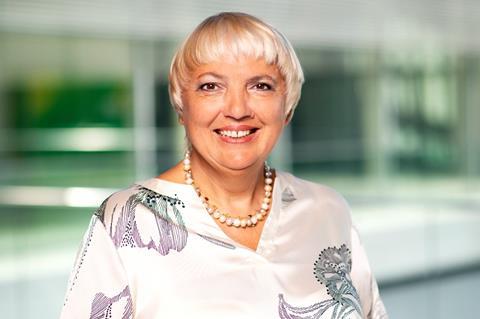
Claudia Roth, Germany’s state minister for culture and media (BKM), has unveiled her long-awaited plan to overhaul the country’s film funding system, which includes the introduction of a 30% tax incentive and an investment obligation for streamers.
The changes to the German Film Law (FFG) should come into effect at the beginning of 2025 once they have been passed by the Bundestag.
The proposals would see the German Federal Film Board’s (FFA) brief being extended to oversee the film funding programme now administered by Roth’s ministry. The FFA’s funding for production, distribution and exhibition would be allocated automatically in future. Currently, funding decisions are taken by selection committees.
Meanwhile, the proposal to introduce a tax incentive scheme for the producers of films and high-end series and production service providers such as film studios would offer an automatic 30% non-repayable grant on the German spend.
This incentive scheme would replace the existing German Federal Film Fund (DFFF) and German Motion Picture Fund (GMPF) which between them provided around €166m in support to German and international projects in 2023. They have backed international projects as the Nicole KIdman series Nine Perfect Strangers and Joshua Oppenheimer’s The End as well as Berlinale titles such as Julia von Heinz’s Treasure, Soleen Yusef’s Winners and Asli Özarslan’s Elbow.
Unlike the DFFF and GMPF, the incentive scheme’s budget would not be capped. This will put Germany on a more equal footing competitively with other countries such as Spain, Hungary and Austria whose tax incentives have been highly successful in attracting international productions to shoot at locations in their respective countries.
A key plank in minister Roth’s restructuring of the German film funding system to give a boost to the domestic production sector would be the requirement for streamers and other VoD services to reinvest 20% of their turnover generated in Germany in European audiovisual production, with 70% of this being spent on original German language production.
Elsewhere, the BKM’s support for projects by up-and-coming filmmaking talents will now be placed centrally in the hands of the Kuratorium junger deutscher Film whose focus has been on first and second films and films for children.
Another innovation proposed for the new FFG would see the creation of a Diversity Advisory Board at the FFA.






![The Brightest SunScreen[Courtesy HKIFF]](https://d1nslcd7m2225b.cloudfront.net/Pictures/274x183/3/5/0/1448350_thebrightestsunscreencourtesyhkiff_312678.jpg)


















No comments yet